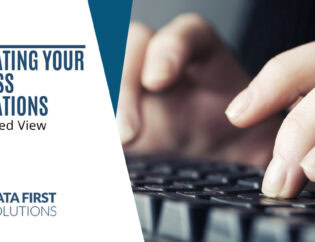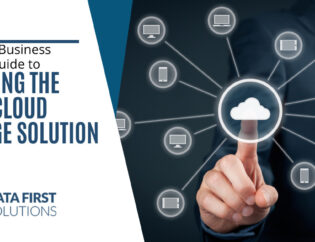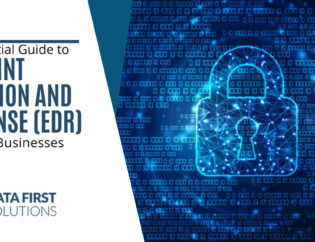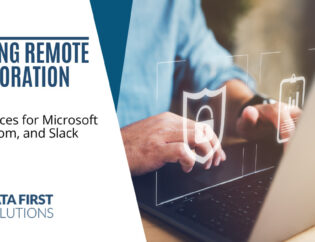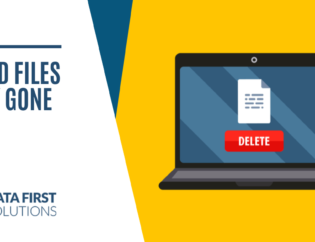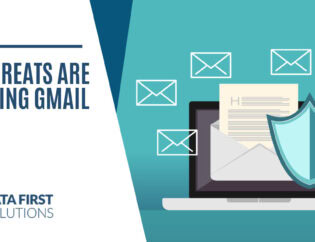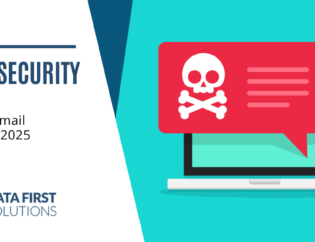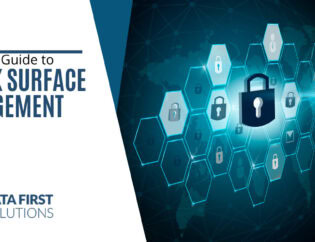
While it may seem like there is still plenty of time to upgrade to Windows 11, that date will come up faster than you think. Especially when you factor in the need to upgrade all systems, check software compatibility, train users, and more.
Understanding End of Life (EOL)
Microsoft is officially retiring Windows 10 Home and Pro a little over 10 years after they were first released. This follows the standard Windows OS lifecycle. What does “end of life” mean?
EOL is also known as retiring an operating system. It signifies the date when the manufacturer ceases to provide:
- Technical support
- Security updates
- Bug fixes.
- Feature updates
While the operating system may technically still work and computers running Windows 10 won’t suddenly crash, it does mean businesses relying on the retired OS will be exposed to significant security risks. Running an outdated operating system can also leave companies open to data privacy compliance violations.
Windows 11: The Future of Business Computing
Microsoft introduced Windows 11 on October 5, 2021, the latest iteration of its flagship operating system. Why should your business upgrade? Let’s explore the key differences between the two versions.
User Interface
Windows 11 boasts a sleek, redesigned interface with a centered Start Menu and taskbar. Some users might appreciate the aesthetic changes and ease of finding the programs and files they need. Considerations for businesses to keep in mind are potential user adoption challenges and retraining needs.
Security Features
Windows 11 introduces advanced security features like hardware-based security that requires TPM 2.0 and passkeys integrated with Windows Hello. These features enhance overall system protection, a critical aspect for businesses dealing with sensitive data.
Improved Multitasking
Snap Layouts and Groups in Windows 11 offer better multitasking capabilities. This can be beneficial for businesses where employees need to manage multiple applications simultaneously.
Hardware Compatibility
Windows 11 has stricter hardware requirements compared to Windows 10. This includes Smart App Control, which only permits apps with good reputations to be installed. Businesses will need to assess their existing hardware infrastructure for compatibility before upgrading.
Why Security Updates Matter for Businesses
Security updates are fundamental for maintaining a healthy and secure IT environment. These updates address newly discovered vulnerabilities in the operating system, patching loopholes that cybercriminals might exploit.
For businesses, the implications of neglecting security updates are severe:
- Increased Risk of Cyberattacks: Outdated systems with unpatched vulnerabilities become easy targets for malware, ransomware, and other cyber threats. A successful attack can lead to data breaches, financial losses, and reputational damage.
- Compliance Issues: Many industries have strict data security regulations. Failing to maintain updated software can put businesses in violation of these regulations and lead to hefty fines.
Upgrading Your Business PCs to Windows 11
Upgrading to Windows 11 involves careful planning and execution for businesses. Here’s a step-by-step approach:
- Hardware Compatibility Assessment: Utilize the PC Health Check app from Microsoft to determine if your existing business PCs meet the minimum hardware requirements for Windows 11. This ensures a smooth upgrade process and avoids compatibility issues.
- Software Compatibility Testing: Before deploying Windows 11 across your organization, test your critical business applications for compatibility with the new operating system. Identify any potential issues and address them before a large-scale rollout.
- Data Backup and Security: Create a comprehensive data backup strategy before upgrading any devices. This ensures you have a recovery plan in case of unforeseen complications during the upgrade process.
- Phased Rollout and User Training: Consider a phased rollout of Windows 11, starting with a pilot group to identify any potential issues before a full deployment. Provide adequate user training to familiarize your employees with the new interface and features to minimize disruption to workflows.
The Decision: Upgrading or Sticking with Windows 10?
The decision to upgrade to Windows 11 should be based on a thorough evaluation of your specific business needs and IT infrastructure. Consider factors like hardware compatibility, software application support, and employee training requirements.
However, with Windows 10 rapidly approaching its end of support, a proactive approach is crucial. Carefully planned and executed upgrades to Windows 11 will ensure your business operates on a secure and future-proof platform, minimizing security risks and maximizing productivity.
Remember, neglecting the upcoming Windows 10 retirement puts your business at considerable risk. By taking action now and planning your upgrade path to Windows 11, you can ensure a smooth transition, maintain a secure IT environment, and empower your business to thrive in the ever-evolving technological landscape.
Get Help Upgrading Your Systems to Windows 11
Don’t wait until the Windows 10 EOL deadline looms large. Start planning your upgrade strategy for Windows 11 today. Data First Solutions has you covered! Our team of experts can help ensure your Toronto area business has a smooth upgrade process and remains secure, productive, and prepared for the future of Windows.
Contact us today to schedule a consultation. Call 416-412-0576 or reach us online.
